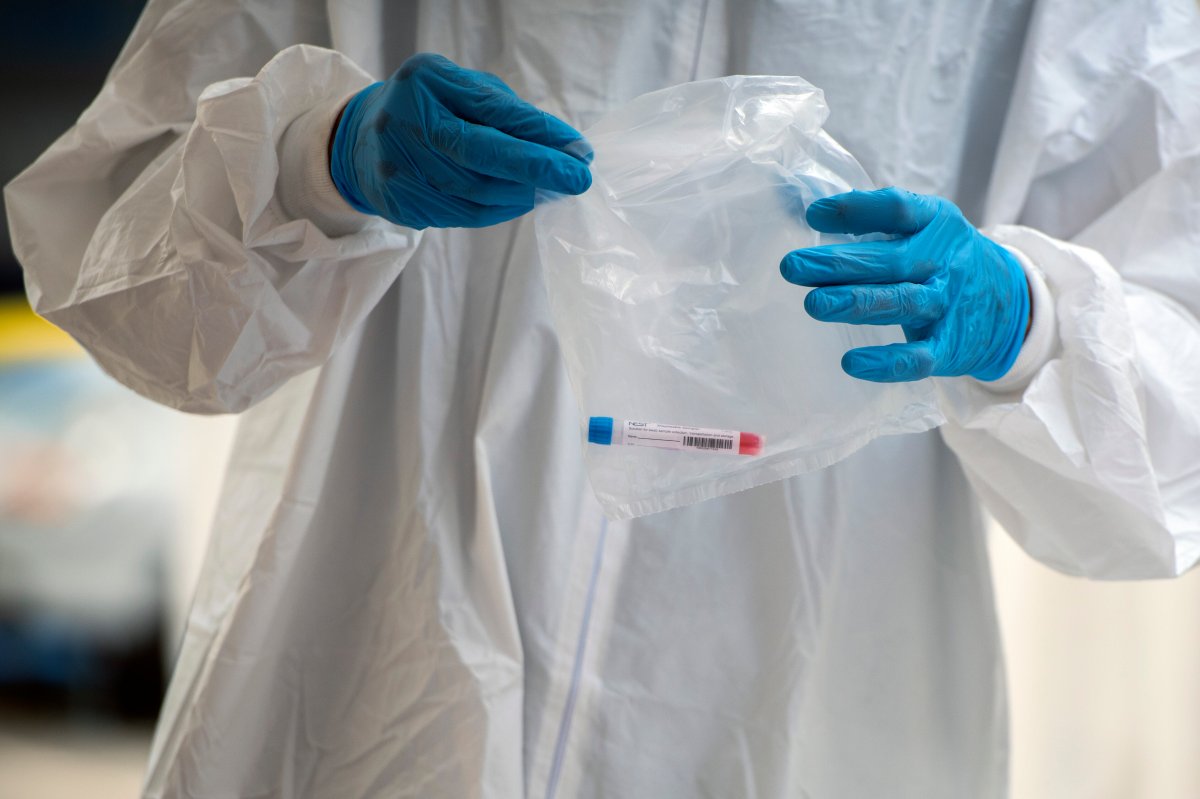A COVID-19 outbreak on a remote First Nation in northern Saskatchewan has community leaders calling for assistance from both the federal and provincial governments.

Hatchet Lake Denesuline First Nation has been on complete lockdown since June 30, with all residents in the community of 2,069 deemed a close contact and in isolation.
First Nation leaders said as of Tuesday, there were 96 active cases in Hatchet Lake with three people in hospital — one of whom is in intensive care. Officials said there are 109 cases linked to the current outbreak, with 13 recoveries.
Hatchet Lake Chief Bart Tsannie said they are a community in crisis.
“We need the resources and support of both levels of government to address foundational issues, such as overcrowding, which has caused the cases of COVID-19 to go out of control,” Tsannie said in a statement Tuesday.
The Prince Albert Grand Council said five trailers and five hotel rooms that are reserved for isolation purposes are almost at capacity and there is a growing concern that there will be a shortage of places to place families.

Get breaking National news
Also of concern to the Northern Inter-Tribal Health Authority is the ability to airlift people who need medical treatment.
- Jasper mayor says CN Rail relocation will be devastating: ‘Deeply disappointed’
- Retired Quebec teacher buys winning lottery ticket at last minute, wins $40M
- N.B. election: Higgs went to ‘very dark place’ with Liberal joke, opponent says
- GM, Volvo, Land Rover vehicles among those in big recall. What to know
“I am very concerned about serious cases that would require medevac out of the community because there are often delays in this process,” said Dr. Nnamdi Ndubuka, the NITHA’s medical health officer.
According to officials, it can take anywhere from nine hours to three days to airlift someone out of the remote community, which is approximately 850 kilometres north of Saskatoon.
The Saskatchewan government said Hatchet Lake, along with other First Nations, is using a rapid testing machine provided by the federal government to support rapid case contact identification.
Health officials said those cases have not yet been added to the provincial count as those have to be manually entered.
The province said manual entry is delayed as staff work on the immediate outbreak response.
PAGC Grand Chief Brian Hardlotte said the current outbreak highlights a number of issues faced by the community, including a lack of proper housing, unacceptable water and sewer service and overcrowding.
He said Hatchet Lake and other First Nations have not been given the opportunity to create a health-care system to offer its communities the protection they deserve.
“We are calling on the federal and provincial government to ensure the needs of our most remote, isolated, fly-in communities are made a priority as containing the spread of the virus is made even more difficult with underlying issues of inadequate infrastructure,” Hardlotte said.
“Our communities are doing the best they can with the resources and facilities they have; yet, funding commitments to improve their health centre will make a difference in ensuring both their immediate and long-term health and safety.”
Officials have also requested assistance from the Canadian Rangers to help with the distribution of food, firewood and care packages.
Twenty members of the 4th Canadian Ranger Patrol Group were brought to Hatchet Lake in November 2020 for 30 days to provide relief during an outbreak at that time in the community.










Comments